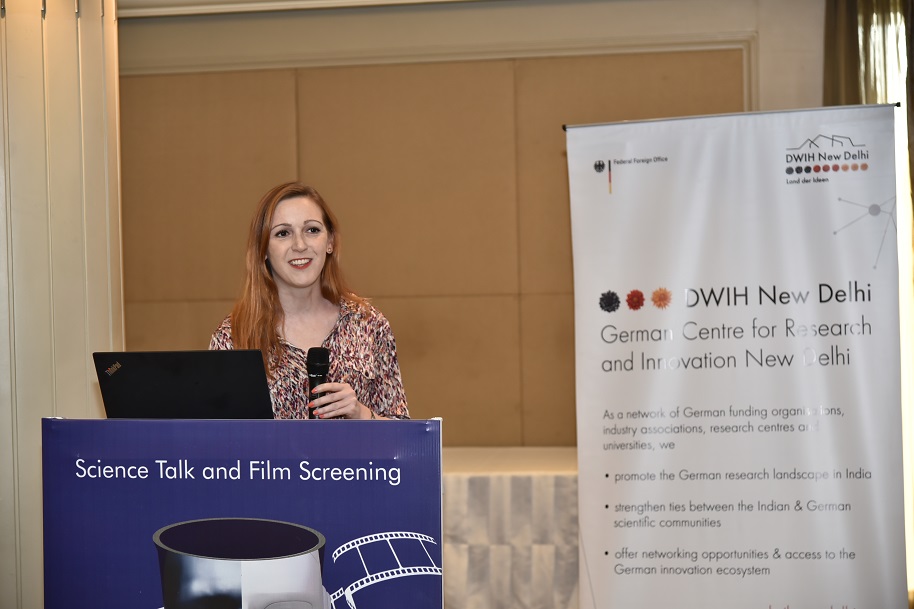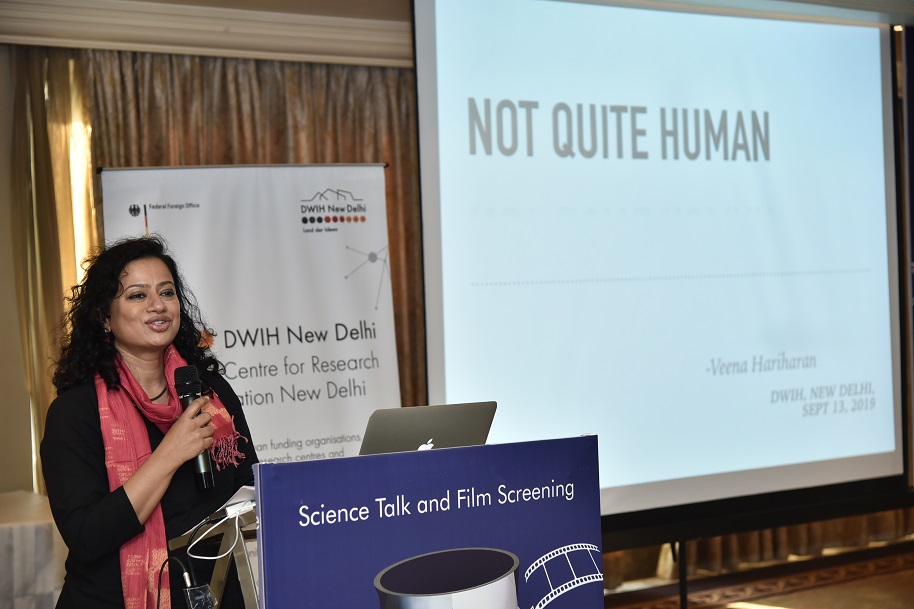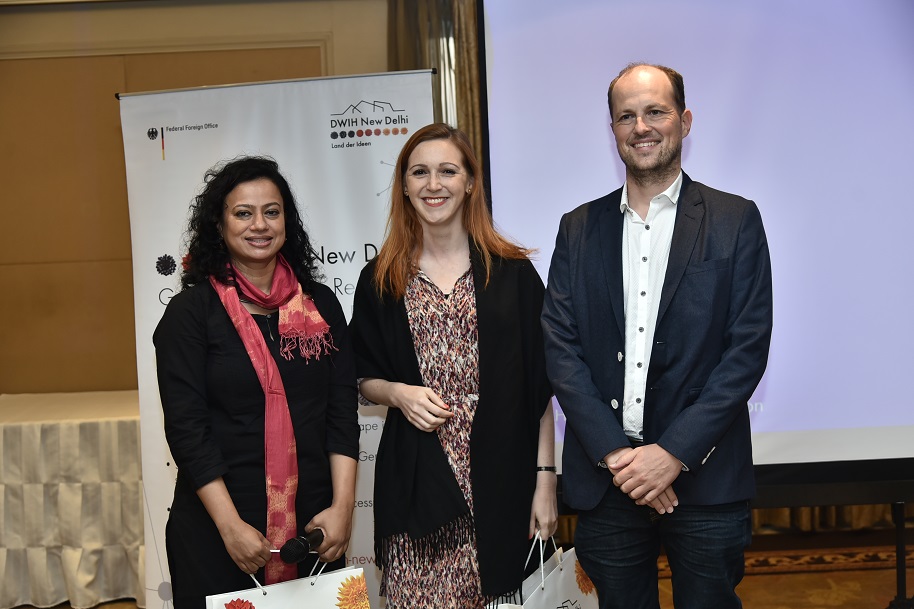Dystopian Futures of the Past: Artificial Intelligence and its Social Impact through Film and Literature
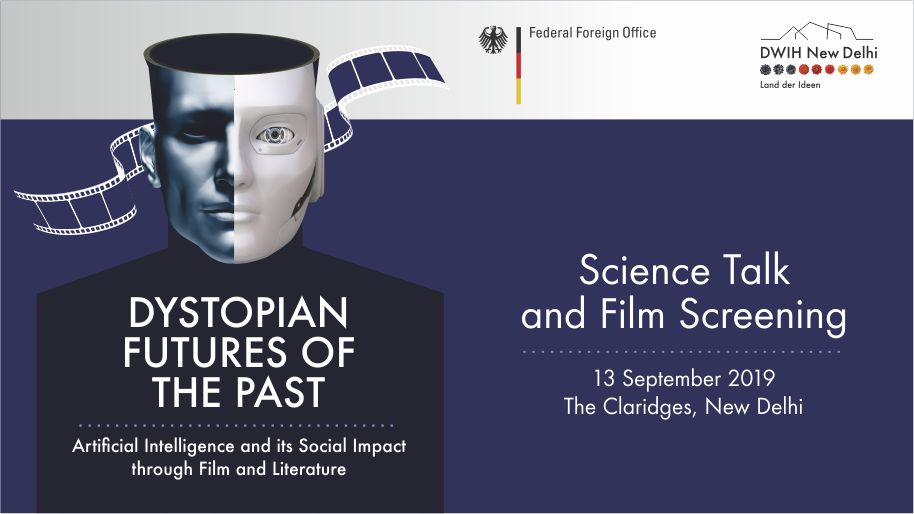 © DWIH New Delhi
© DWIH New Delhi
This event is designed to encourage conversations about how artificial intelligence may impact our life and world in the years to come. Talks by two well-known professors from India and Germany (see the Speakers section below) will be followed by a screening of the movie ‘Metropolis’ which will serve as a reference to their talks and point for discussion on the topic.
Synopsis of the Movie:
The Metropolis (Released in 1927 in Germany) is a black and white science fiction movie. It is a silent movie available with a musical score and subtitles in English. The movie was directed by Fritz Lang.
It shows a grim futuristic society in the city of Metropolis which is inhabited by two distinct classes: the industrialists live off the fat of the land, supported by the workers who live under the city and endure a bare-bones existence of backbreaking work. The story concerns a relationship between Freder (played by Gustav Fröhlich), a young man from the industrialist class, and Maria (Brigitte Helm), an activist who preaches against the divide between the two classes. The subterfuge and deceit involving a robot duplicate of Maria culminate in a revolution that quickly spells disaster for all involved.
The film is believed to have some of the most impressive images and production design and its portrayal of robotics and artificial intelligence and the implications of scientific advances on humans and societies.
Venue: Viceregal Hall, The Claridges, New Delhi
The registrations for the event are now closed.
Event Information
September 13, 2019, 4:00 PM to 9:00 PM
New Delhi
Organizer(s): DWIH New Delhi
Speakers
Dr Isabella Hermann
Scientific Coordinator
IAG “Responsibility: Machine Learning and Artificial Intelligence”
Berlin-Brandenburg Academy of Sciences
Dr. Isabella Hermann is a political scientist and discourse analyst. She explores how artificial intelligence is framed in the discourse and how the use of AI systems affects society. Having always been fascinated by the societal effects of new technologies, she also publishes and talks about science fiction and politics; she is jury member of the international Berlin Sci-fi Filmfest. Isabella currently acts as research coordinator of the interdisciplinary research group “Responsibility: Machine Learning and Artificial Intelligence” at the Berlin-Brandenburg Academy of Sciences and Humanities in Berlin. The project examines the ethical and legal challenges associated with the use of AI systems and makes recommendations to ensure that the focus of technological development is on humans.

Artificial Intelligence - Not Magic, But Technology!Dr Isabella Hermann
The science-fiction genre shows us a fictional scientific/technological progress of the future and its effects on our way of life. Remarkably, especially in films, this future is rather negative and dystopian. Particularly when it comes to artificial intelligence (AI) in the form of conscious systems and robots, the technology is often presented as almighty, mystical and magical. However, since AI is not magic but mathematics and data, science-fiction films don’t seem to be a good basis for a public discourse on AI. On the one hand, they neglect the chances of the technology such as improvements in health care or optimisation of resource consumption. On the other hand, fictional conscious AI systems and robots which either plan to extinguish humanity or dissolve into self-doubt, conceal the real challenges associated with the use of the technology like discrimination and data bias, surveillance states as well as digital capitalism.
Dr Veena Hariharan
Assistant Professor
Centre of Cinema Studies
School of Art and Aesthetics
JNU, Delhi
Dr Veena Hariharan is Associate Professor, Cinema Studies at the School of Arts and Aesthetics, Jawaharlal Nehru University, New Delhi. She is a fellow at the Cluster of Excellence, Temporal Communities at the Freie University, Berlin. Her essays and articles on home movies, documentary, and non-fiction cinema have appeared in anthologies and journals. She is interested in the relationship between nature and technology in cinema and new media, and her most recent work on the environment, shikar and hunting films is included in the Blackwell Anthology of Indian Film (forthcoming).
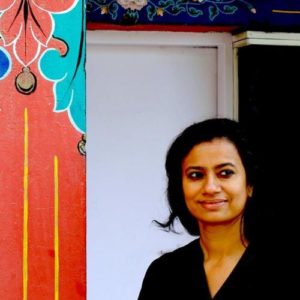
Not Quite Human: Nature, Technology and AI FilmsDr Veena Hariharan
If artificial intelligence is the holy grail of science and technology, then how does the medium of cinema that lies at the intersection of art, science and technology represent artificial intelligence? Walter Benjamin, reflecting on the new media of cinema at the turn of the last century, emphasized the notion of play/ interplay between nature and humanity as a function of the technological arts. How do A.I. films across time, from Fritz Lang’s Metropolis (1927) to Roberto Rodriguez’ Alita: Battle Angel (2019), posit the relationship between humanity, the natural world and technology? The talk will address the questions related to the borders between humans and artificially created sentient beings, even as they blur in the cinematic sci-fi universe.
References
The Claridges
The Claridges
Address:
The Claridges Hotel, 12, Dr APJ Abdul Kalam Road, Tees January Road Area, Motilal Nehru Marg Area, New Delhi, Delhi 110003
Phone:
011 3955 5000

